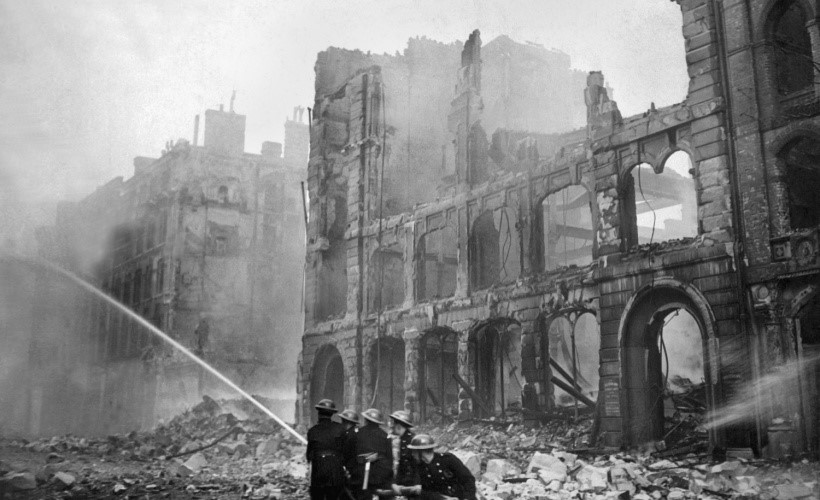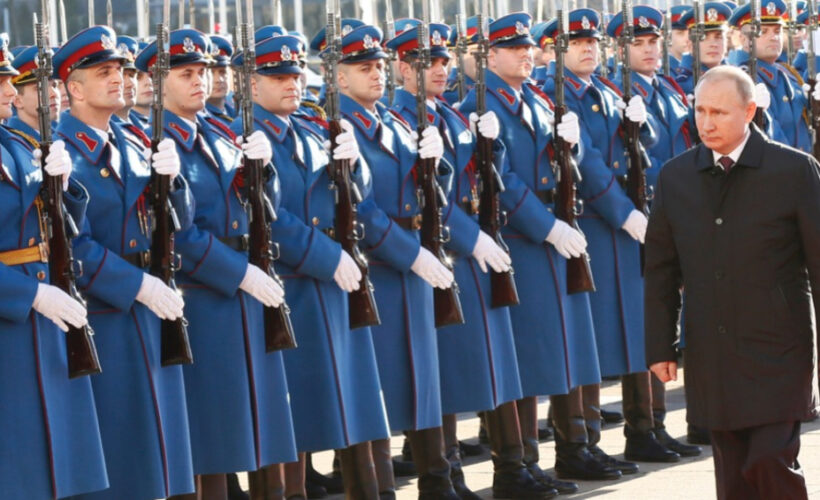By Patrick Milton, former Research Fellow at Peterhouse
An important focus of the Centre for Geopolitics’ work is on the challenges facing the implementation of the Responsibility to Protect (R2P). In recent weeks, this issue has again become salient as the military regime of Myanmar has massacred hundreds of protesters after it seized power from the democratically elected government on 1 February 2021.
In discussing this and similar challenges facing humanity as a whole, it may be useful to look further back in history than is usual when considering the obstacles to R2P and in particular to the humanitarian intervention which is in some cases – in practical terms – required to ensure its implementation, bearing in mind that the two are distinct phenomena.
Contrary to what many commentators claim, the issue of intervention to ensure the protection of foreign subjects is not relatively new. It was debated by European theorists and statesmen from as early as 500 years ago. Questions addressed by our European ancestors were often remarkably similar to those facing the international community today. These related to the legality of providing external protection, how to harmonise sovereignty with a duty to protect, and the geopolitical and practical aims and limitations of intervening.
A chief lesson from history is that interventions rarely ‘worked’. Some interventions were able to achieve the interveners’ geopolitical goals, and the intended protectees were sometimes successfully protected. But this outcome was very much hit and miss. More often, interventions were either grotesquely slow, ineffective, or catastrophically counter-productive. One thing that could be relied upon, was that the outcomes and consequences of interventions—except in the tiniest territories—were always unpredictable, sometimes dramatically so. Few people could have predicted, for example, that the intervention in support of the Bohemian rebels in 1619, would unleash a destructive thirty-year-long war which would kill at least a fifth of Germans.
As today, there was a divide among legal thinkers between those arguing for the legality of interventions in some cases (Bodin, Gentili, Grotius), and those denying it (Hobbes, Vattel, Suarez). Most theorists agreed that sovereigns derived their legitimacy from fulfilling a responsibility to protect their own subjects, while the question of whether this could be extended to foreign subjects was more controversial.
In the Myanmar case, many of the most strident calls for action have been made by those who do not wield much political power. This was also the case in early modern Europe. The UN Special Rapporteur for human rights in Myanmar recently stated that ‘words are not enough’. Likewise, the most vociferous proponents of an English intervention in Germany at the beginning of the Thirty Years War (1618-48) came from a group of Puritans at the periphery of power in London.
Once interventions were decided upon, the strategy of justification was slightly different then than now. Today’s justifications focus mainly on extreme human suffering and mass killings. Early modern justifications by contrast usually listed long litanies of sometimes petty legal violations allegedly committed by the target government to paint a picture of arbitrary rule, in addition to instances of mass atrocity crimes. In terms of a theoretical justification, therefore, the bar for intervention seems to have been lower in the early modern period than today.
Despite exhaustive debates about the legality of such undertakings, the key factor, both then and now, has been geopolitical: whether an intervention would take place almost always depended upon a reinforcing strategic interest of the intervener. Cases without a matching geopolitical impetus, such as the English intervention in defence of the (Protestant) Waldensians of Savoy in 1655 or the British intervention in Sierra Leone, were and are exceedingly rare.
It was also because of the primacy of geopolitics that states were never consistently pro or anti-interventionist in principle. In the eighteenth century, Prussia shielded neighbouring petty client-tyrants from intervention while referring to principles of non-intervention, while simultaneously intervening in other states’ domestic affairs in pursuit of power-political interests. This is exactly the stance that China is believed to be adopting with regard to its neighbour Myanmar and which explains while intervention will probably not occur there: it is not in any western state’s interest to risk militarily challenging China in its backyard for the sake of saving Burmese pro-democracy protesters. China’s and Russia’s opposition to any UN intervention (military or otherwise) in Myanmar had already been made clear in 2007 and 2017, and was again put on display earlier this year.
A similar parallel can be found in the seeming inconsistency of certain groups being victims arguably requiring external protection and at other times being perpetrators of tyranny themselves. In the Myanmar case, international action is being mooted in support of the ousted National League for Democracy which arguably was itself complicit in the 2016-18 genocidal ethnic cleansing of the Rohingya Muslims of Rakhine state in western Myanmar.
The historical record shows that interventions usually occurred only once the target state had descended into civil war, such as the sixteenth-century French wars of religion and the Dutch revolt, because an intervention this context represents a lesser escalation than in a situation where there is no open warfare. The major interventions in Libya and Syria in the 2010s also occurred once the opposition had organised a military campaign against the government. This is perhaps the rationale underpinning the Burmese government-in-exile’s call for armed resistance against the army and for an alliance with the long-standing armed ethnic rebel groups, such as the Karen National Liberation Army.







